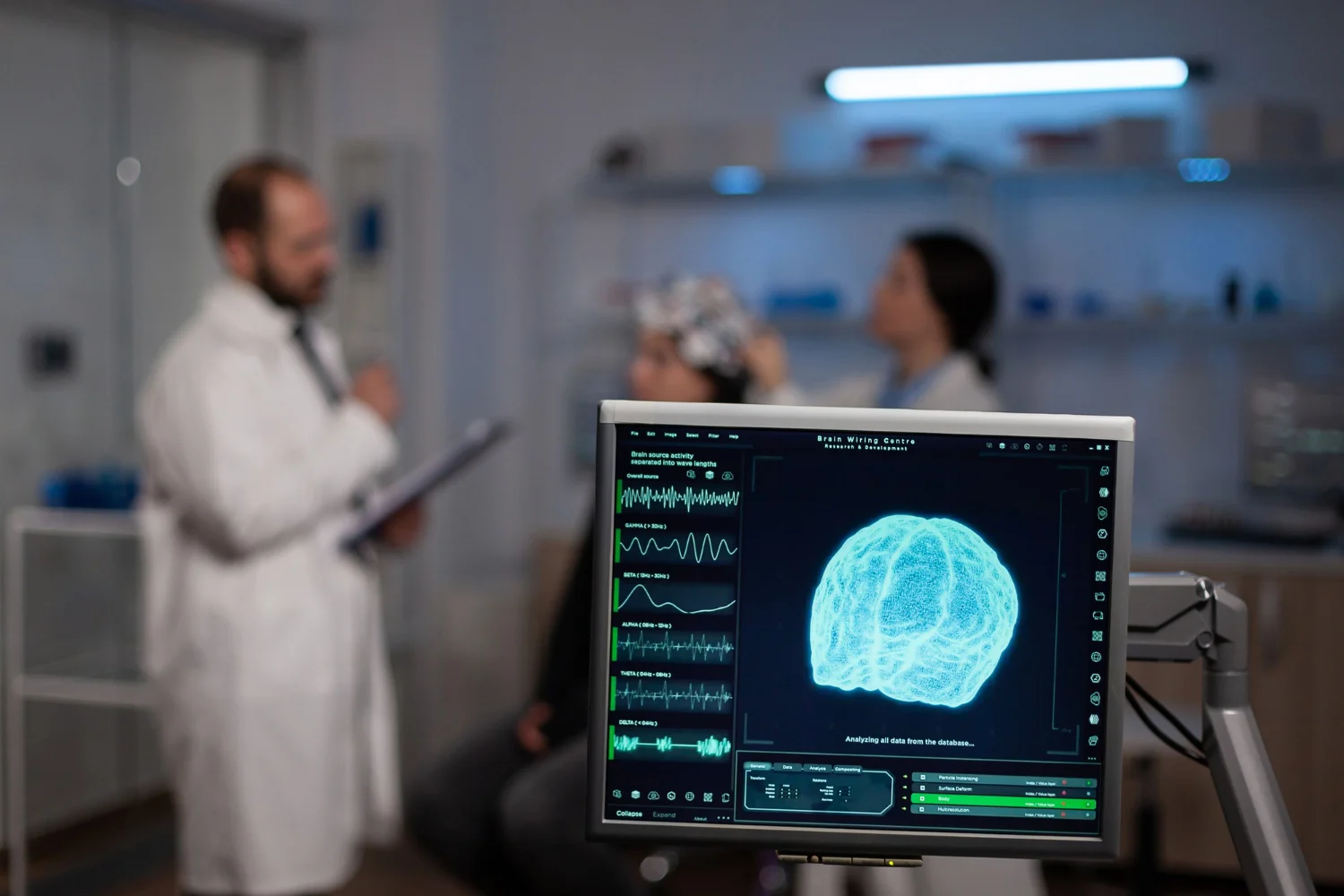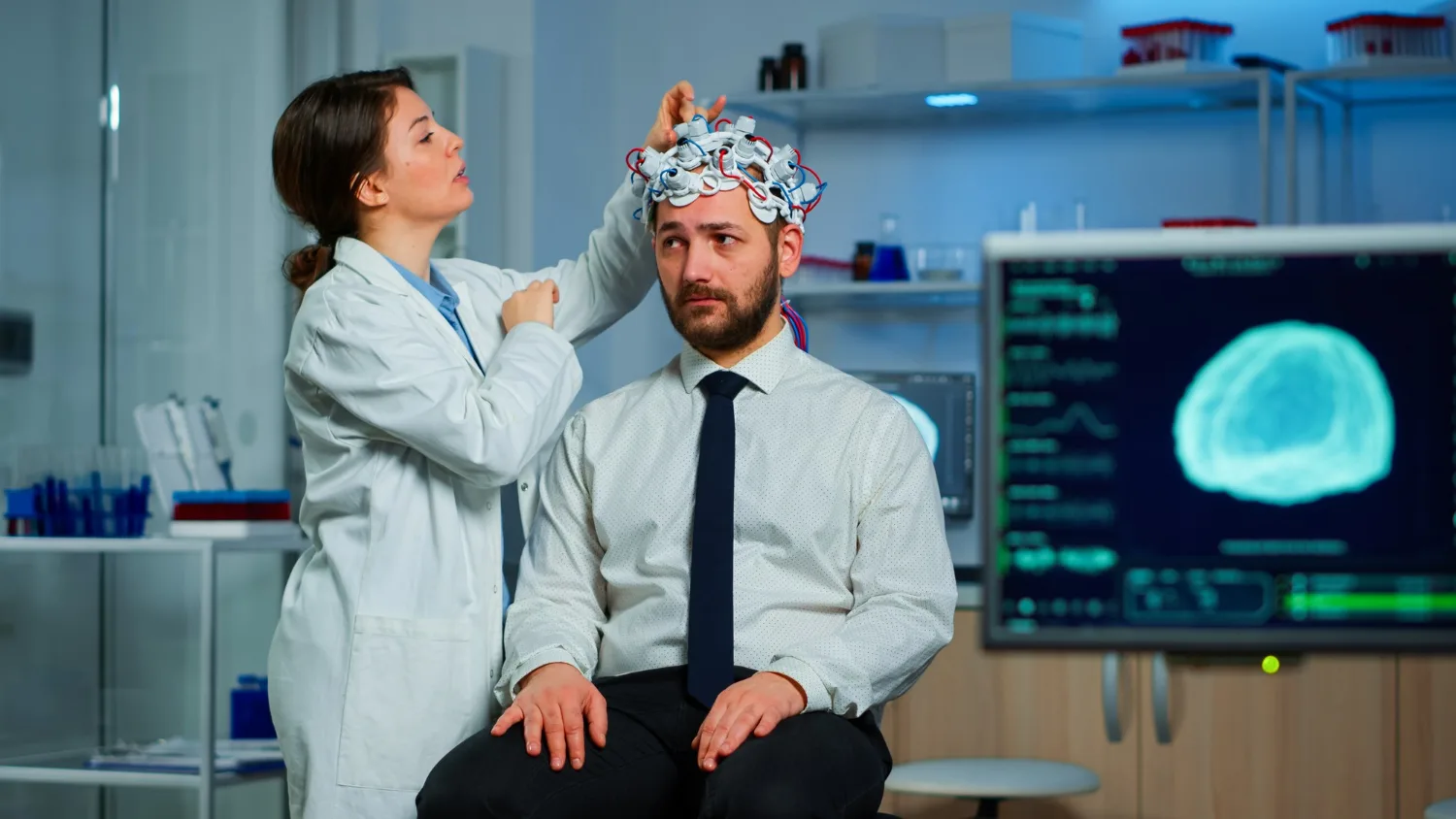How to Prevent Epilepsy?
Category: Neurology
Epilepsy is a chronic neurological disorder characterized by unprovoked, recurrent seizures due to abnormal brain activity. It affects millions globally, cutting across age groups and health backgrounds. While epilepsy often seems unpredictable, there are well-established causes and risk factors that help guide preventive measures.
Understanding what causes epilepsy, and more importantly, how it can be prevented, is key to reducing its impact. In this blog, we’ll answer common user questions like “Can epilepsy be prevented?”, “What increases the risk of seizures?”, and “How can I protect myself or my child from epilepsy?”
At Lokmanya Hospitals, we go beyond treatment—we focus on preventive neurology as well. Recognized as one of the best hospitals for emergency and neurological care, our experts at the neurology department offer comprehensive diagnosis, early interventions, and lifestyle guidance to reduce your risk of epilepsy.
What Causes Epilepsy?
Before understanding prevention, it’s crucial to explore the root causes:
1. Genetic Factors
Some forms of epilepsy are inherited, meaning a family history can increase your chances. While you can't prevent genetic predisposition, you can detect early signs and manage triggers.
2. Brain Injuries
Head trauma from accidents, sports injuries, or falls is a major cause of epilepsy. This type, known as post-traumatic epilepsy, may arise months or years after the injury.
3. Infections
Conditions like meningitis, encephalitis, and even neurocysticercosis (caused by tapeworm) can damage brain tissue and trigger seizures.
4. Stroke and Vascular Disorders
Strokes can cause sudden-onset epilepsy, especially in older adults. High blood pressure, cholesterol, and diabetes can raise this risk.
5. Birth Complications
Brain damage during delivery or oxygen deprivation can lead to epilepsy in children.
6. Brain Tumors and Malformations
Structural issues like tumors, cysts, or abnormal brain development can contribute to seizure activity.
How to Prevent Epilepsy: 8 Practical Strategies
While not all forms of epilepsy are preventable, especially those caused by genetics or unknown factors, many acquired causes can be addressed with preventive care.
1. Avoid Head Injuries
- Wear helmets during biking, contact sports, or construction work.
- Use seatbelts and child car seats properly.
- Fall-proof your home for toddlers and the elderly.
2. Vaccination Against Brain Infections
- Immunize against measles, mumps, rubella, meningitis, and other neuroinvasive diseases.
- Prevent mosquito-borne infections like Japanese encephalitis in high-risk regions.
3. Manage Chronic Conditions
- Control blood pressure, diabetes, and cholesterol to reduce stroke risk.
- Get regular check-ups, especially if you have cardiovascular issues.
4. Prenatal and Perinatal Care
- Ensure proper maternal nutrition and avoid infections during pregnancy.
- Deliver in a well-equipped hospital to avoid complications like oxygen loss.
5. Treat Fevers in Children Promptly
- Febrile seizures are common in infants. While not all lead to epilepsy, prompt fever control and medical attention can reduce risks.
6. Maintain Good Brain Health
- Avoid substance abuse, especially alcohol and recreational drugs.
- Sleep regularly—sleep deprivation is a known seizure trigger.
- Stay mentally active to support brain function.
7. Recognize Early Warning Signs
- Aura, dizziness, staring spells, and sudden confusion can precede seizures.
- Consult a neurologist early to rule out seizure disorders.
8. Access Regular Neurological Screenings
At Lokmanya’s Neurology Department, we offer preventive screenings, EEGs, brain scans, and advanced diagnostic services for early detection.
Why Choose Lokmanya Hospitals?
At Lokmanya Hospitals, we combine clinical excellence with compassionate care. Our neurology department is equipped with advanced tools for epilepsy diagnosis, including video EEG monitoring, MRI, and neuropsychological assessments, helping us detect conditions before they progress.
Whether you’re managing seizures or trying to prevent epilepsy in high-risk cases, Lokmanya provides holistic neurological care. We are also recognized as one of the best hospitals for emergency and critical care services—crucial for epilepsy-related emergencies.
Conclusion
Epilepsy is not always preventable, but understanding its causes and risks allows you to take proactive steps. From avoiding head injuries and treating infections to managing chronic diseases and improving maternal care, prevention is possible for many types of epilepsy.
Early intervention is key. At Lokmanya Hospitals, we don’t just treat epilepsy—we help prevent it. Our specialists work with you to create lifestyle changes, monitor brain health, and offer expert neurology support every step of the way.
Frequently Asked Questions
1. Can epilepsy be prevented entirely?
Not always. Genetic or unknown causes may not be preventable, but many cases caused by trauma, infections, or stroke can be minimized with timely medical care.
2. Who is most at risk of developing epilepsy?
People with a family history, brain injuries, stroke, brain infections, or birth complications are at higher risk.
3. How does Lokmanya Hospitals help in epilepsy prevention?
Lokmanya provides neurology consultations, EEG, MRI, and preventive guidance to patients at risk. We also specialize in critical neurological care.
4. What should I do if I experience early seizure symptoms?
Seek immediate help from a neurologist. Early diagnosis can prevent seizures from worsening.
5. Is there a cure for epilepsy?
While not always curable, epilepsy is highly manageable with the right medication and care plan—often coordinated through a neurology expert.

Previous blog

What Is Brain Tumor?
Next blog






